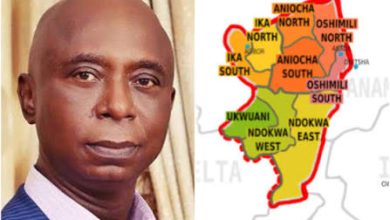Open letter sparks debate as journalist criticises Obasanjo, Fayose over birthday party drama By Adeola Agoro

A reflective courtroom anecdote often told to illustrate the dangers of unfiltered truth found new relevance this week, as journalist Adeola Agoro issued a public open letter directed at former President Olusegun Obasanjo and former Ekiti State Governor Ayo Fayose.
The letter, now circulating widely, uses the cautionary tale of an outspoken courtroom witness to draw parallels with the tense atmosphere that unfolded at Fayose’s 60th birthday celebration, an event that unexpectedly became a stage for old grievances and public rebuke.
Agoro, writing in a tone both respectful and firm, expressed concern over the former president’s blunt remarks at the event.
According to her, the occasion attended by high-profile guests, including industrialist Aliko Dangote, was expected to be celebratory and conciliatory.
Instead, Obasanjo’s comments reopened long-standing disagreements and left many attendees stunned.
She argued that a statesman of Obasanjo’s stature is increasingly expected to project calm and unity rather than reignite political rifts.
Citing classical teachings on restraint from ancient philosophy to modern strategy the writer suggested that the former president’s influence carries enough weight to warrant caution, especially in a country already grappling with public tension and political fatigue.
Agoro warned that incidents like this could make hosts more hesitant to extend invitations to elder statesmen if there is fear that private disputes might resurface in public settings.
Turning to Fayose, Agoro questioned the wisdom of inviting Obasanjo to the milestone celebration despite years of strained relations between the two men.
She suggested that political disagreements and personal misunderstandings long whispered about in political circles may not have been resolved sufficiently to allow for an open public reunion.
While avoiding specifics, Agoro referenced widely circulated rumours from past years that contributed to their fallout, noting that unresolved tensions rarely disappear simply because an occasion calls for celebration.
She also criticised reports that Fayose may have attempted a conciliatory gesture after the event, saying such actions might reopen old wounds rather than mend them.
At his age, she argued, the former governor should be prioritising stability and reconciliation rather than inadvertently reigniting conflict.
Agoro broadened her appeal to both men—and by extension, to the nation’s political class.
She described Nigerians as emotionally drained after weeks of public controversies spanning entertainment, politics and social media.
Against this backdrop, she argued, public confrontations among elder statesmen only deepen the atmosphere of fatigue and disillusionment.
What the country needs now, she wrote, is a commitment to decorum, emotional intelligence and maturity—qualities that younger generations often look to older leaders to model.
Agoro ended with a plea for restraint, urging that the birthday incident become the last of such public spectacles.
As the daughter of one of Obasanjo’s former political rivals and someone familiar with Fayose, her commentary carries personal insight as well as professional observation.



